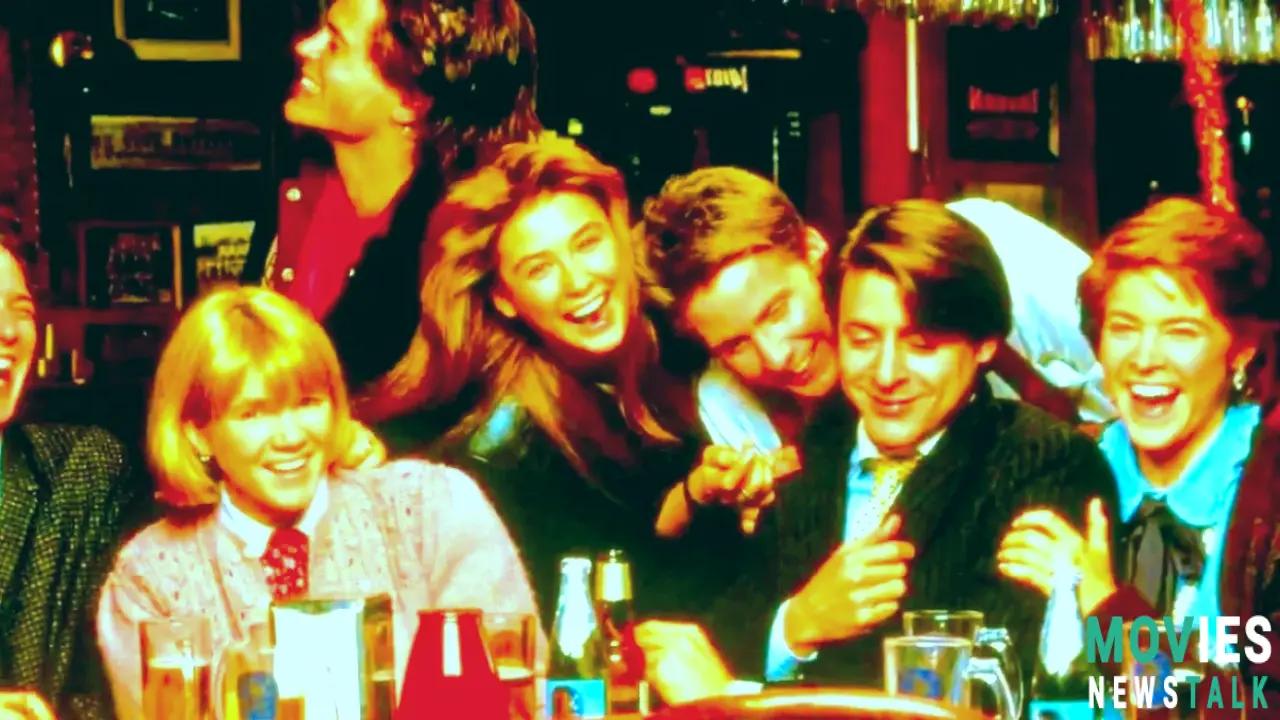Regret the Brat Pack Article: David Blum
Brats, Hulu's latest documentary, examined how David Blum's well-known moniker, the "Brat Pack," affected the young actors of the group and whether he regretted coining the word. Blum's 1985 New York Magazine story on Emilio Estevez and his contemporaries produced the Brat Pack. Blum came up with the moniker to characterize a set of young performers from the 1980s who seemed to have developed connections outside of their employment and often collaborated. Among the various revelations in Andrew McCarthy's Brats documentary were the fact that most Brat Pack members detested the moniker.
Among the other ´80s Brat Pack members were Anthony Michael Hall, Molly Ringwald, Rob Lowe, Demi Moore, and Judd Nelson. For the movie, McCarthy was able to interview most of the Brat Pack members; Molly Ringwald and Judd Nelson are not featured in the Brat Pack documentary. Fascinatingly, David Blum participated in the documentary and discussed his side of the tale and the reasons he came up with for the name.
David Blum Is Not Regretting His "Brat Pack" Article
David Blum's piece appearing in The New York Magazine on June 10, 1985, would alter public opinion of a group of young performers. Blum still supports the Brat Pack nickname even though its connotation is unfavorable. Blum said in his Vulture piece, "In truth, I still don't understand why some Brat Packers feel so victimized," (via Vulture). His comment makes it quite evident that he has no regret about coining the word. Blum doesn't think the term altered the performers in the Brat Pack's professional path in any sense.
During his interview with Andrew McCarthy in the Brats documentary, he further underlined his argument more. The Brat Pack members were "adults," Blum informed the actor and director, which made them fair target. The author kept defending his piece by underlining that it wasn't meant to ruin anyone's career. The phrase was just a clever way he described a bunch of young performers nearing the pinnacle of their careers (via People).
Why David Blum's Article Made Most Brat Pack Members Uncomfiture?
The young performers included in the Brat Pack had to deal with the phrase that defined their careers when they first started out in Hollywood. David Blum might not have known why the performers were not happy with the nickname, but there is little doubting that the phrase had some effects, particularly given his piece seemed to suggest the actors were interchangeable. Being identified in a way they did not want to be labeled largely infuriated the Brat Pack members.
Some Brat Pack members have throughout time voiced their opinions on the piece; McCarthy seems to have been the one most irritated by the moniker. McCarthy objected to the piece since he felt it degraded his work by suggesting they were all driven by fame and money rather than the love and respect they had for their professions. Considered the Brat Pack leader, Emilio Estevez felt that the moniker "was unsophisticated." Like McCarthy, Demi Moore also thought that the piece minimized them as professionals (via New York Post).
Did the Brat Pack Article change actor career paths?
Following the publication of "Hollywood's Brat Pack," the group's members were urged to avoid one another in order to prevent the label compromising their careers. Although it's hard to determine whether the actors' Brat Pack membership affected their employment prospects, there were times when it seemed clear they would have benefited from not being included into the "brat" group. Emilio Estevez, for example, turned down Young Men With Unlimited Capital in order to stay away from collaborating with Andrew McCarthy, another Brat Packer wanted to star in the film.
But as David Blum noted in the Brats documentary, most of the Brat Pack did wind up having remarkable careers beyond their 1980s Brat Pack films. Since leaving the Brat Pack moniker behind, Demi Moore has worked on numerous movies and TV shows; Ally Sheedy and Molly Ringwald have followed suit. Having said that, it is indisputable that David Blum's essay had far greater influence on the Brat Pack's personal and professional life than he imagined.
The Brat Pack Documentary: A View Backward through a Defining Period
Brats referenced many iconic "80s films, but filmmaker and brat Andrew McCarthy concentrated on those at the core of the Brat Pack. Hulu has brats for streaming. The movie presents an interesting perspective on the Brat Pack—a group of teenage actors who became well-known in the 1980s—as a cultural influence. The documentary looks at the Brat Pack moniker's beginnings, the influence of David Blum's piece, and the performers' careers following group labeling.
Reviewing classic movies like The Breakfast Club, St. Elmo's Fire, and Pretty in Pink is Brats' nostalgic walk down memory lane. It also looks into the Brat Pack performers' personal life and career paths, therefore providing understanding of their experiences and opinions on the legacy of the group.
Legacy of the Brat Pack
Though most of its members did not like the term, the Brat Pack had a big influence on the movie business. Reminiscing about a bygone era, the group's films are still loved and respected today. All taken together, the Brat Pack is evidence of the force of youth and the influence young performers can have on the cultural scene.
With its realistic characters and examination of issues of love, friendship, and coming of age, the Brat Pack helped define a generation and caught the essence of the 1980s. Filmmakers and performers today still find inspiration in the Brat Pack heritage; their impact on the motion picture business is indisputable. Considered classics, these movies have had a long-lasting effect on the cultural scene.

